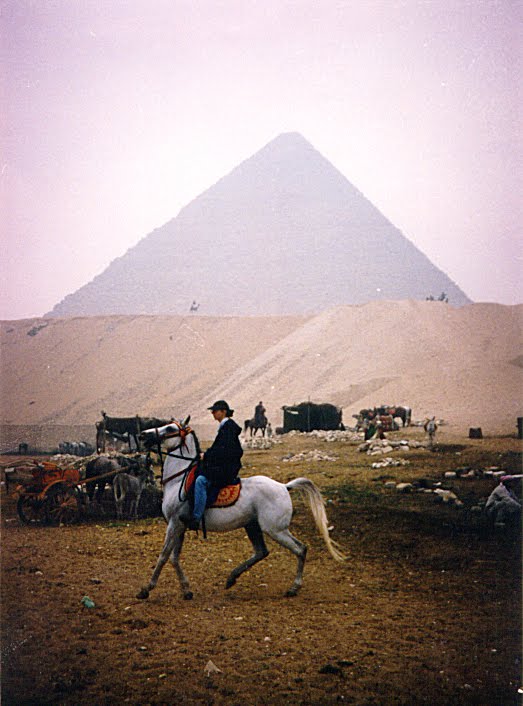
Image from www.theshoyencollection/arabic.htm
Another powerful story about losing yet another Arabic linguist to Don't Ask, Don't Tell. What if all Arabic linguists boycotted working for the US gov until this was repealed, the way many straight couples have started a movement to boycott marriage until gays can wed? A fantasy, but I'm just sayin'...
Don't Ask Don't Tell: A Story Highlighting the Anguish Faced By Soldiers with Indispensable Skills By Sasha Suderow, from the www.huffingtonpost.com target="_blank">HuffPost
Beirut -- On Sergeant Jed Anderson's back is tattooed "I give life and death." As a US Army Arabic linguist in Iraq he did just that -- process intelligence that saved or ended lives. He performed this crucial role in the war effort until becoming the 64th Arabic linguist discharged under the "Don't Ask, Don't Tell" policy.
President Obama, Secretary of Defense Gates and Joint Chiefs of Staff Mullen support overturning "don't ask don't tell" -- signaling the possible demise of the controversial sixteen year-old policy. Although it humiliated and ruined the careers of many soldiers, Arabic linguists suffered disproportionately at a time when their skills were indispensable. By adhering to the policy -- especially during wartime -- three Presidential administrations handicapped American military capability and demonstrated the policy not only inhumane but self-defeating.
Anderson's story highlights the daily anguish gay and lesbian soldiers face; jeopardizing their lives for comrades and country while concealing an identity punishable by expulsion from the military or even jail-time.
"The Army invested in me, taught me discipline and self-confidence and made me what I am today," Anderson says fidgeting with a cigarette in a Beirut cafe. He enlisted in the Army on a linguist contract only months after the invasion of Iraq. Although practical considerations prompted his enlistment, faith in America's democratizing mission in Iraq endowed his new job with a higher purpose. "I wanted to make the world a better place," he says.
Anderson scored high on an aptitude test and was given a year and a half of rigorous Arabic and analyst training with two-hundred peers at The Defense Language Institute in Monterey, California.
Deployed to Iraq, Anderson translated and analyzed enemy communication first in Mosul and then Rawa, near Syria. He handled sensitive, classified material. "I gained information that saved American lives," he bluntly states. He eventually became the top Arabic linguist for his brigade and was chosen as the personal street interpreter for a Colonel who wrote a reference extolling Anderson's skill.
Anderson did not enter the Army acknowledging his own sexuality. Ironically, it was the military's emphasis on integrity that gave Anderson the self-confidence to accept who he really was. Those same values became his undoing. He sought to uphold the principles instilled in him, and as a result, became increasingly aware of the lie he lived.
In Iraq he focused on the mission and suppressed his emotions "the way any soldier learns to ignore personal issues like marital problems," he says. Anderson hid his gay identity while on tour for fear of rejection by his peers. Hearing derogatory terms prevalent in macho military culture did not affect him. Occasionally, however, the topic forcibly confronted him. Once, an interrogator requested Jed write "faggot" in Arabic on a placard that would be used to humiliate an Iraqi detainee.
The rest of the article is here.
Friday, March 12, 2010
Don't Ask, Don't Tell--Don't Translate
Posted by Nancy Dietrich at 11:05 AM
Labels: Arabic, Don't Ask Don't Tell, Iraq, linguists
Subscribe to:
Post Comments (Atom)




1 comment:
i absolutely love your own writing type, very exciting.
don't quit as well as keep writing considering the fact that it just good worth to read it.
excited to look into more of your own well written articles, good bye!
Post a Comment